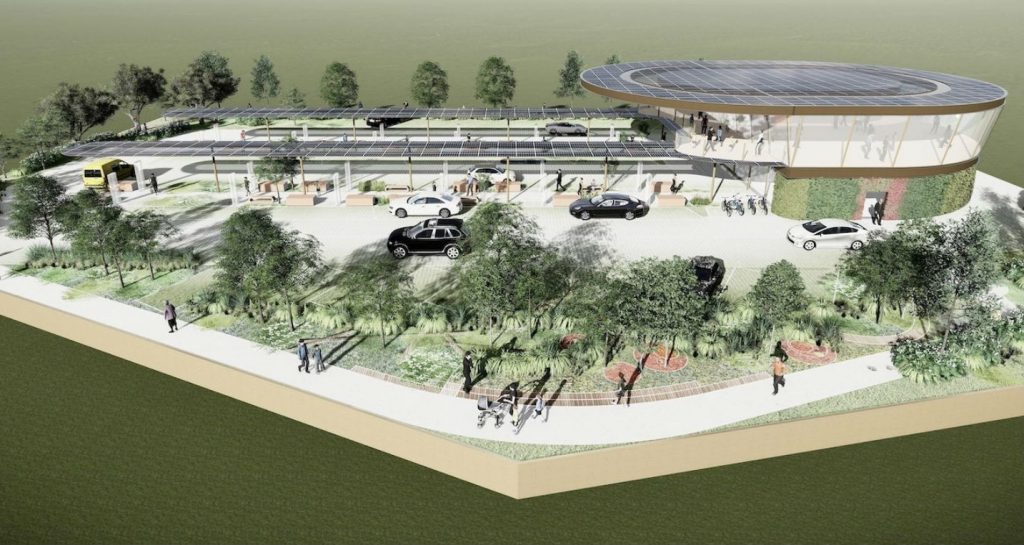Boston Consulting Group (BCG) told delegates about its in-depth study of the fuel retail industry which saw it create four different market scenarios that are likely to emerge, each defined by changes in mobility and consumer lifestyle.
Scenario one would see fossil fuels remaining dominant with more limited electric vehicle penetration, while scenario four would see electric and autonomous vehicles dominate, with fossil fuels almost disappearing; digital would be at the core of consumer lifestyle and mobility choices.
Stuart Groves, managing director of Boston Consulting Group, told delegates: “Even though there are wide differences between the scenarios, all scenarios show that fuel network could be unprofitable by 2035. Our strong view is that no response from fuel retailers will have a substantial impact on profitability.
“In our view, there is no doubt that there are substantial risks to profitability, at the same time we believe there are significant opportunities for fuel retailers that are willing to transform.”
BCG believes fuel retailers have to move into adjacent business sectors such as advanced mobility, last-mile logistics, and new real estate. It suggests retailers can enter last-mile delivery by having micro-hub warehouses and fleets of autonomous vehicles. They can expand their businesses by acquiring electric charging spaces and offer overnight parking and other maintenance services.
The consultants believe this will help fuel retailers capture new customers, increase the number of touchpoints they have with their existing customers, and shift their focus from vehicles to consumers.
Groves told delegates: “Service stations must become a multipurpose destination that customers actually want to visit, offering a broad range of curated products and services, and offering an immersive experience.”
Xavier Hery, project leader at BCG, added: “Expanding to the goods and the people mobility value pools is needed to compensate for the loss of traditional sources of revenues. Current forecasts on car refueling, car wash and maintenance, in addition to the standard c-store offering, will no longer be enough – a shift is required from a vehicle focus to a customer-centric approach in order to capture value from adjacent, spaces.
“In advance markets we are already seeing some fuel retailers that are on this journey, leveraging data and technology, they are increasing the number of customer touchpoints and developing omnichannel strategies for their c-stores. They are investing in mobile fuel delivery, partnering for last-mile logistics, and digitalising and personalising the customer journey.”
Sustainable energy company Gridserve, which plans to build a UK-wide network of more than 100 electric forecourts, also outlined its vision for the future.
Jerry Stokes, executive chairman of Gridserve, told the ACS conference: “Today’s charging infrastructure will need to be rapidly improved to cater for the significant number of electric vehicles that are coming to the market.
“Home charging is convenient, destination charging – such as the workplace, in parks or supermarkets – is quite helpful, but the reality is there are over 40% of people that don’t have off-street parking, therefore, public charging is a critical part of the piece for people to enter electric mobility.”
Gridserve’s position is to use the lastest-generation of chargers that charge at the fastest possible rate, which means being able to charge at up to 350 miles of added range in as little as 20 minutes.
The company is in the process of building in Braintree, Essex, and has applied for planning on sites in Norwich and Uckfield, Sussex, and has a fleet of other sites that are at various stages of development.
Gridserve’s sites will include a solar canopy to provide some of the power for the site, a two-storey building which houses convenience retail on the ground floor and on the first floor an electric vehicle experience centre – such as a car showroom – meeting rooms, a fitness centre, and airport-style lounge offering high-speed internet.
Up to 24 vehicles will be able to charge simultaneously at up to 350kW and there will also be spaces for people who aren’t charging and just want to relax.
Stokes said: “We realise that if the driver is going to be sat for 20 minutes, it is really important they have something to do, to relax and use their time. These sites will all be greenfield sites so there will be new opportunities for convenience store operators.
“We would be delighted to engage with members of the ACS to talk about opportunities for c-stores on our electric forecourts.”
 Talking Retail Grocery and product news for independent retailers
Talking Retail Grocery and product news for independent retailers






